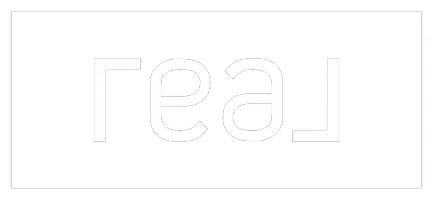Are Your Homebuying Plans Paralyzed by ‘What Ifs’?

Purchasing a house is a decision that can have a profound impact on one's life. It's only natural for buyers to consider all the possible "what if" scenarios before making a commitment. What if mortgage rates drop after we buy? What if home prices plummet? What if we lose our job after buying a house?
These questions have always been a part of the soul-searching process before buying a property. However, in today's unpredictable real estate market and uncertain economy, these scenarios have caused some buyers to feel paralyzed.
Amit Arora, vice president of investments at real estate site Opendoor, acknowledges that these concerns are valid. Buying or selling a home is one of the biggest financial decisions people make in their lives. However, dwelling on these potential scenarios can prevent you from taking any action at all and keep you in a perpetual state of indecision.
To help you navigate through these concerns, we have examined some of the most common real estate "what ifs" and provided fact-based reality checks.

What if I buy now and home prices drop?
According to a recent survey by Opendoor, 93% of homebuyers believe that current homes on the market are overpriced, and 72% are concerned about home affordability. As a result, some buyers are hesitant to make a purchase, hoping for further price drops and better deals. However, this might not be the best approach.
Arora explains that there is still a shortage of inventory, and homes are actually selling faster now than they were in 2019. Additionally, home prices in many areas are still on the rise. While it's impossible to accurately predict when the housing market will reach its peak and experience a decline in prices, historical data shows that real estate tends to appreciate over the long term. Therefore, instead of fixating on the "what ifs," Arora suggests considering other important factors such as your love for the home, its suitability for your needs, and its affordability.
What if I buy now and mortgage rates fall?
High mortgage rates are currently a top concern for 77% of homebuyers, according to the Opendoor survey. However, it's important to note that the perception of high rates might be influenced by the record-low rates experienced during the COVID-19 pandemic.
Jonathan Rundlett, regional owner of EXIT Mid-Atlantic, explains that the average mortgage interest rate over the last 30 years has been around 7%. While current rates might seem high compared to the 3% to 4% range of 2022, they are not unusually high. Rundlett predicts that it is unlikely we will see rates as low as those experienced during the financial crisis in 2007-08.
To alleviate concerns about mortgage rates, one option is to consider an adjustable-rate mortgage (ARM), although this might not be suitable for everyone. Another option is to keep in mind that you can always refinance in the future if rates significantly drop. Refinancing might be financially beneficial if the savings from lower rates outweigh the costs associated with refinancing.
Experts agree that current interest rates should not deter you from buying a home. Most lending guidelines recommend that your mortgage payment should not exceed 28% to 33% of your gross monthly income. As long as you can comfortably afford the monthly payments, you should proceed with the purchase.
What if I don't buy now, but prices and rates keep going up?
This scenario often leads potential homebuyers to feel like they are falling behind in their homeownership goals. Home prices and rates continue to rise, making it harder to save for a down payment and keep monthly payments within a certain budget.
Mason Whitehead, a Dallas branch manager for Churchill Mortgage, explains that if prices and rates keep going up, buyers may find themselves needing more time to save for a down payment or struggling to keep their desired monthly payment within reach. However, speeding up the buying process requires careful consideration.
Danielle Hale, Chief Economist at Realtor.com®, advises against rushing into a purchase due to the fear of missing out on homeownership. It's essential to find a home that suits your needs and budget. Changing circumstances, such as new career opportunities or a move to a more affordable area, can open up possibilities for homeownership. It's important to remember that a lot can change in the housing market and in your life.
"The constant increase in home prices means you have to save even more for the down payment. And if interest rates also go up, it becomes even more challenging to catch up," Whitehead points out. This becomes particularly true if you're aiming to keep your monthly payment within a specific limit.
For instance, let's assume you want to keep your payment at $3,000 per month. Currently, with a 5% down payment, Whitehead suggests you could purchase a home worth around $350,000 and meet that target. However, if prices rise by 5% and interest rates increase by half a percentage point (0.5%), your payment would surge by approximately $250 per month, and you would need to save an extra $875 for the minimum down payment.
"For buyers who are budget-conscious, which is the case for most people, this setback translates into being delayed by at least four or five more months," says Whitehead. "It can feel like the goal is slipping further away, and that's not a comfortable situation."
Despite the urgency to expedite the buying process, it's crucial to approach it with careful deliberation.
"When interest rates began to rise significantly in 2022, this likely pushed some shoppers to accelerate their timelines for buying," Hale explains. "Those who acted swiftly without straining their budget probably feel content with their decision, but homeowners who rushed and stretched their finances may end up regretting it."
In fact, according to the July 2022 Anytime Estimate Home Buyer Survey, nearly 72% of individuals who purchased homes in 2021 or 2022 expressed regrets about their purchase. Around 30% of them believed they had spent too much money, and 26% wished they hadn't rushed into buying.
"I don't think the fear of missing out on homeownership is a valid reason to hastily purchase a home that doesn't align with your needs or budget," Hale emphasizes. "The housing market and your life circumstances can change significantly. New career opportunities may alter your income trajectory, or relocating to a more affordable area might make homeownership feasible."

What if the property has hidden problems that cost a bundle to fix?
Imagine the frustration of buying a property only to discover that it has hidden problems that require a significant amount of money to fix. It can quickly turn a dream home into a financial burden. This is especially true for those who choose to invest in fixer-uppers, thinking it could be a cost-effective option.
Surprisingly, more than half of the buyers surveyed in the Anytime Estimate survey (55%) purchased fixer-uppers in the years 2021 and 2022, only to realize that these properties were not the bargains they had hoped for. In fact, buyers who opted for fixer-uppers ended up spending more than the average buyer. The price per square foot for a fixer-upper was $187, compared to $163 for a home in good condition. On top of that, the average annual cost of owning a home, including maintenance and other expenses, amounted to $15,405.
To avoid the uncertainties and potential financial setbacks associated with purchasing a property with hidden problems, Gerald Haynes, a mortgage product manager, advises potential homebuyers to create a budget that includes provisions for unforeseen expenses like repairs and renovations. He also recommends getting a home inspection before making an offer to identify any potential issues.
Another option to consider is asking the seller to cover the first year of a home warranty. If they refuse, it might be wise to invest in one yourself, as it could prove to be a worthwhile investment in the long run.
What if I buy a house but then lose my job or suffer a financial setback?
But what if you buy a house and then find yourself in a situation where you lose your job or face financial hardships? This is a valid concern that many people have experienced in recent years. To address this, it is crucial to ensure that you do not stretch your finances to the point where you cannot afford your mortgage payments in a worst-case scenario. It is advisable to have at least six months' worth of living expenses saved as an emergency fund in case of unexpected setbacks.
When purchasing a home, it is essential to choose one that comfortably fits within your budget, allowing you to make mortgage payments both now and in the future. Ideally, you should also have some savings cushion after the purchase, but if not, rebuilding your emergency fund can provide security in case of financial setbacks.
However, if you have already bought a house and find yourself unable to afford it, it is crucial to contact your mortgage lender immediately and discuss possible payment plans. Being honest and upfront with your lender can often lead to finding a solution, as foreclosure is typically the last resort for them.
On a more positive note, what if you buy a house now, and property prices rise? Well, you win! This is what every homebuyer hopes for in terms of the price appreciation of their property. Buying a house now means that if prices increase, you will see the equity in your home grow, providing you with more options, whether you decide to stay or move.
With increased equity, you can tap into the additional value of your home through options like a home equity loan, allowing you to remodel if your needs change. Moreover, when the time comes to move again, the accumulated equity can be used to make a larger down payment on your next home. So buying a house now and witnessing price growth can be a beneficial outcome for homeowners.
For any questions, please contact Our Team.
Categories
Recent Posts










